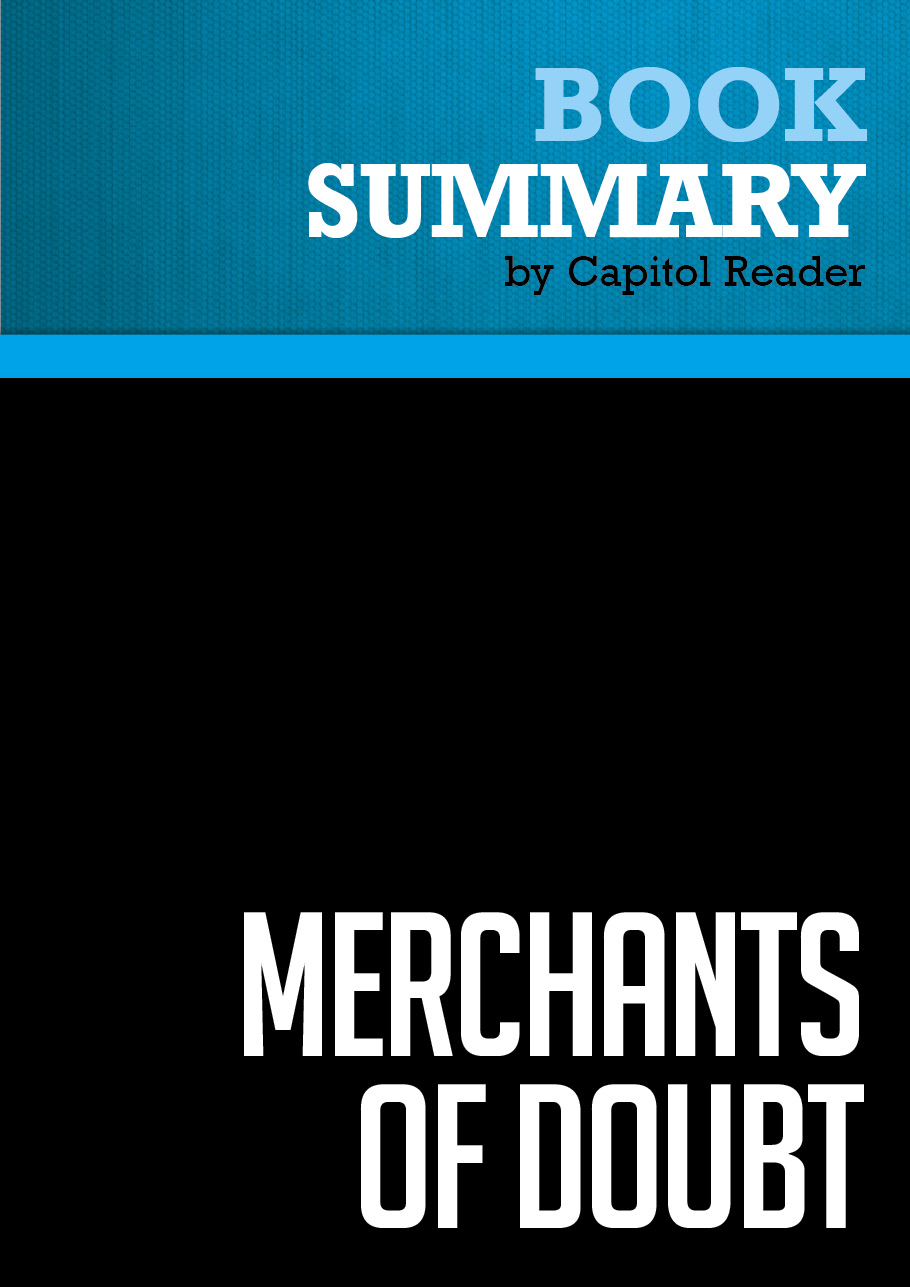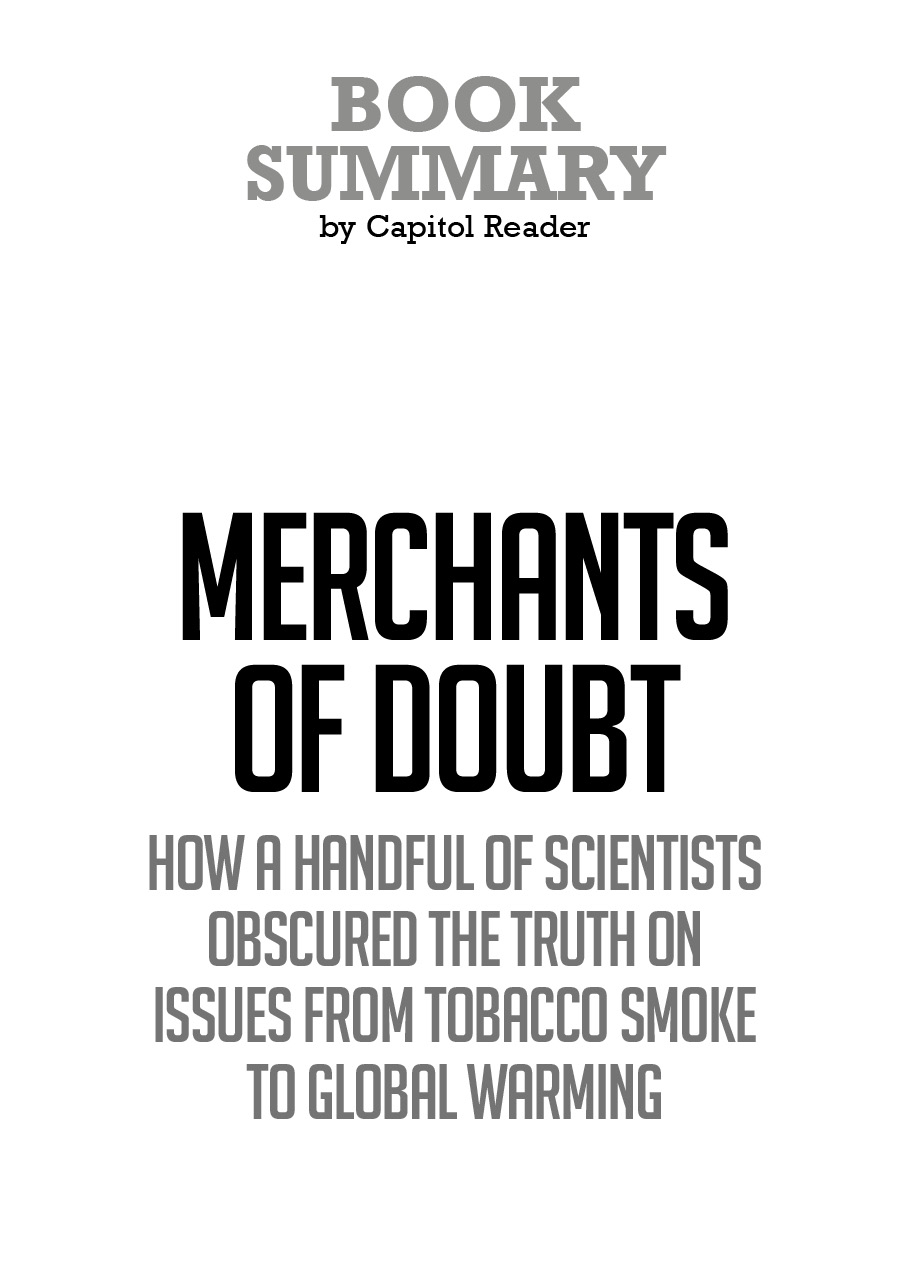Book Presentation
Merchants of Doubt by Naomi Oreskes and Erik Conway
Book Abstract
Science can rarely ever draw definitive conclusions early on but usually must wait until empirical proof emerges before theories can be validated. A handful of politically conservative scientists (with strong and often undisclosed ties to particular industries) have used this characteristic of the scientific method to their advantage to challenge the scientific community’s emerging consensus on various issues including the health dangers of cigarette smoking, the effects and source of acid rain, the existence of the ozone hole and in more recent times the impact of man’s activities in generating climate change.
What’s interesting about this phenomena is the same group of three scientists – physicists Bill Nierenberg, Fred Seitz and Fred Singer – keep popping up again and again whenever science is attempting to form a consensus view on controversial political issues like global warming. It appears their standard modus operandi is to use the scientific community’s insistence on gathering definitive empirical data first as an opening to generate deliberate obfuscation about these issues, thereby influencing both public opinion and the political will of policy makers.In other words, today’s climatechange skeptics arein factrecycled critics of controls on tobacco and acid rain who use their scientific credentials to present themselves as authorities and then attempt to steer the public debate to try and discredit any science they don’t like.
The best way to respond to their attempts to discredit science, disseminate false information, spread confusion and create doubt is to be aware of what’s going on.
About the Author
Naomi Oreskes and Erik Conway are science historians. Naomi Oreskes is Professor of History at the University of California, San Diego. Erik Conway is the historian at NASA’s Jet Propulsion Laboratory at the Californian Institute of Technology in Pasadena.
Important Note About This Ebook
This is a summary and not a critique or a review of the book. It does not offer judgment or opinion on the content of the book. This summary may not be organized chapter-wise but is an overview of the main ideas, viewpoints and arguments from the book as a whole. This means that the organization of this summary is not a representation of the book.


